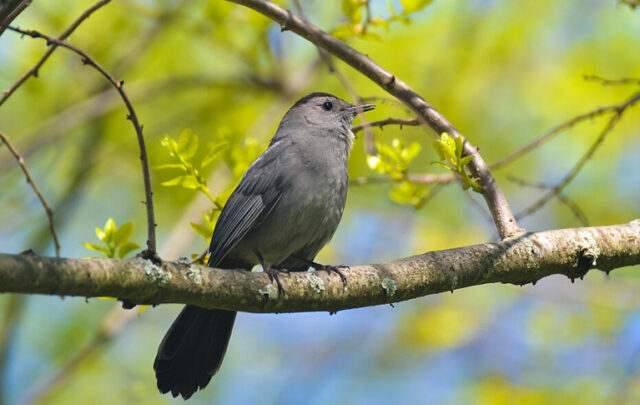
Exchange of seeds in the 5th Region. © Red Semillas Libres Chile
The inclusive, horizontal and autonomous network Red Semillas Libres Chile aims to preserve the cultural heritage that is our seed stock and to combat genetically-modified seeds and monocultures.
Valentina Vives is very pleased when she attends a community seed exchange of the Red Semillas Libre Chile (RSLC, Chile Free Seeds Network) to find someone with the same native seed species that her grandparents used to grow: species that were thought to be extinct or perhaps forgotten. For the past four years, her RSLC companions and Vives herself have been hearing people repeating publicly the same messages that her organisation has been publicising in Chile and in other countries. The network was founded in 2012 as a transdisciplinary, non-hierarchical and self-governed non-profit organisation.
“When I hear my ideas and those of my teachers in the mouths of others, I remember that the seeds are much more than just a legacy in the shape of plants. And I am reminded as to our mission. These messages, passed from one generation to another, are vital, since without seeds there are neither nations, nor people, nor culture. To destroy them is to destroy our own lives. Seeds are a sacred element that must be shared, that is a law of nature”, comments Vives, who is an environmental engineer.
The battle against monopolies
Valentina Vives was inspired to found RSLC in 2012. That is when she met Claudia Flisfisch at a conference about biodiversity and the production of organic seeds in Ollantaytambo (Peru). At this meeting organised by the French Kokopelli association Valentina Vives and Claudia Flisfisch developed the idea of founding the Red Semillas Libres Chile – in tune with other volunteers from Colombia, Ecuador, Venezuela and Argentina. The initial group of eight professionals from different disciplines grew quickly to incorporate over twenty organisations committed to the preservation of seeds.
The aim was firstly to fight against the expansion and monopolization of local and multinational companies that, searching for profits, strive to reduce the range of native and hybrid seeds available, instead promoting agricultural monocultures. Moreover, their seeds, which are usually genetically modified, are expensive and protected by intellectual property laws. So to put it bluntly, the RSLC is fighting against nothing less than today’s nutrition system.
According to estimates from Chile’s National Association of Seeds Producers, approximately 45,000 hectares may be planted with genetically modified seeds by the end of 2015 in Chile. So far, there are neither statutory provisions for these types of seeds nor regulations to protect farmers who want to work with natural seeds. Various environmental organisations have expressed their concerns about the release of genetically modified foodstuffs.
Seeds should not be privatised
Vives explains: “We are seeking to recover seeds that are free of intellectual property rights, as well as agro-chemicals, genetic modifications and other restrictions. It is intolerable that seeds are governed by copyright, because they are the source of all life, of culture, and must not be privatised. We have to do away with the consumerist, fearful society that has been erected on an unfounded principle: that food is going to become scarce.” To Vives, this also means that food production has to be governed by common law.
One of the main objectives of the Red Semillas Libres Chile is to infect all Chileans – and perhaps people from the neighbouring countries – with a spirit of alternative development, based on human qualities: on the values of sharing, moderation and reciprocity, way beyond the need for constant consumption and closer to a more horizontal economy. The network does this through workshops, regular meetings, assemblies and discussions looking at techniques for recovering seeds and the legal aspects of the associated cultural heritage. “We are not simply trying to rescue and cultivate the seed, but also to eat the crop, in this way appreciating its history and closing the circle”, asserts Vives.
Alternative relationship with the planet
Between 2013 and 2014 the RSLC activists travelled around Chile, sharing their experiences and to lay the foundations of regional subgroups. Today there are networks in the Biobío River and Maule River regions, in the Metropolitan region, as well as in Chiloé and Punta Arenas. Valentina Vives, along with the other five members, has gotten to work on reorganizing the network internally: “This year we are creating the Semilla Austral cooperative, which offers services to the Free Seeds Network on a broader scale, because we think that the rescue of seeds is something that does not move along on its own. We need to work within an environmental education programme to generate a paradigm shift and an alternative relationship with the planet. We are holding workshops, we are planning to found a publishing house, and we are applying for international projects.”
The network’s 2013 open meeting brought together over 800 people for seven days in Laguna Verde. The organisation’s national and international email distribution lists contain around 10,000 addresses. “We have never needed to convince anyone, people come to us by themselves. This organisation, like others in the network, is based on trust and self-regulation. That’s the beauty of it,” Vives sums up.





